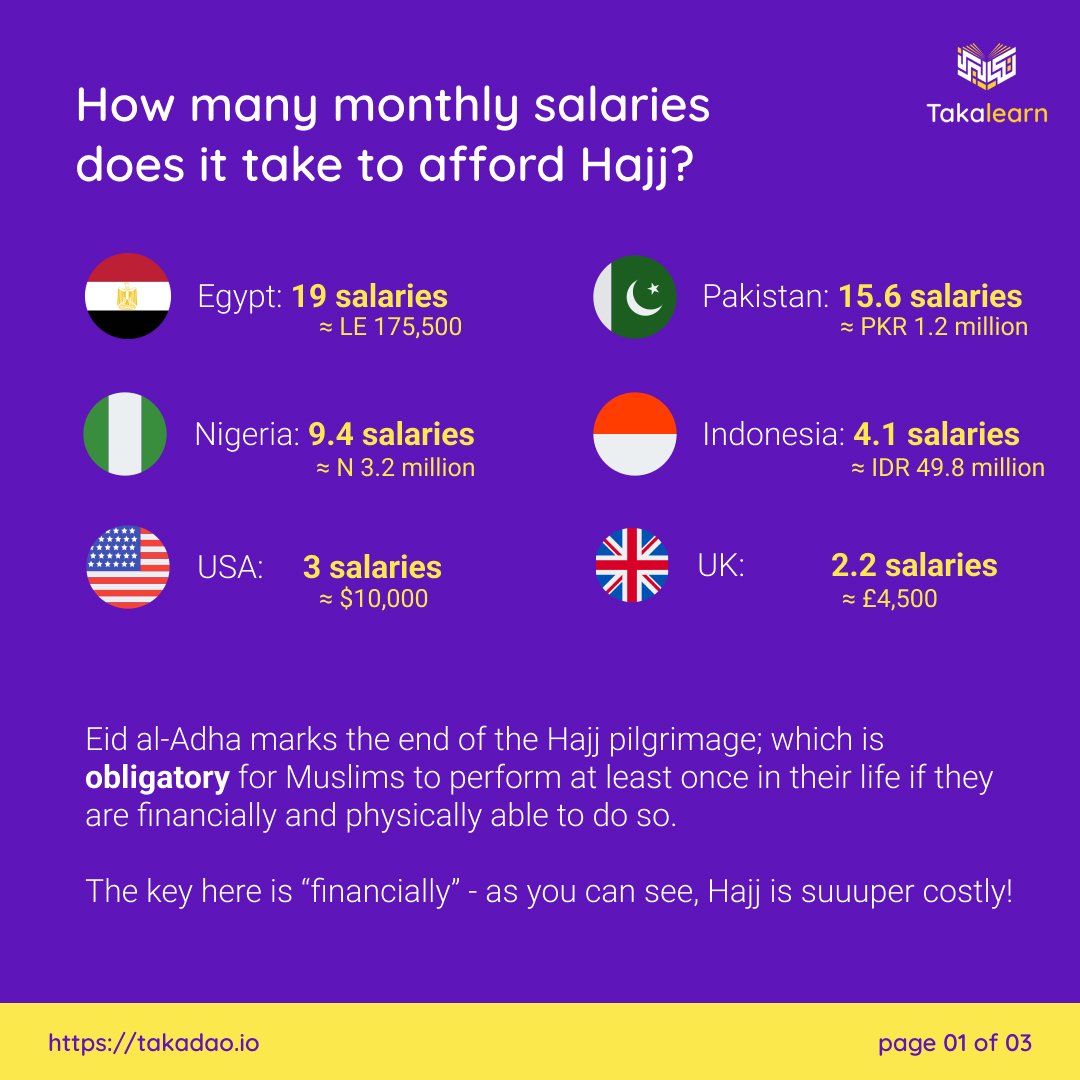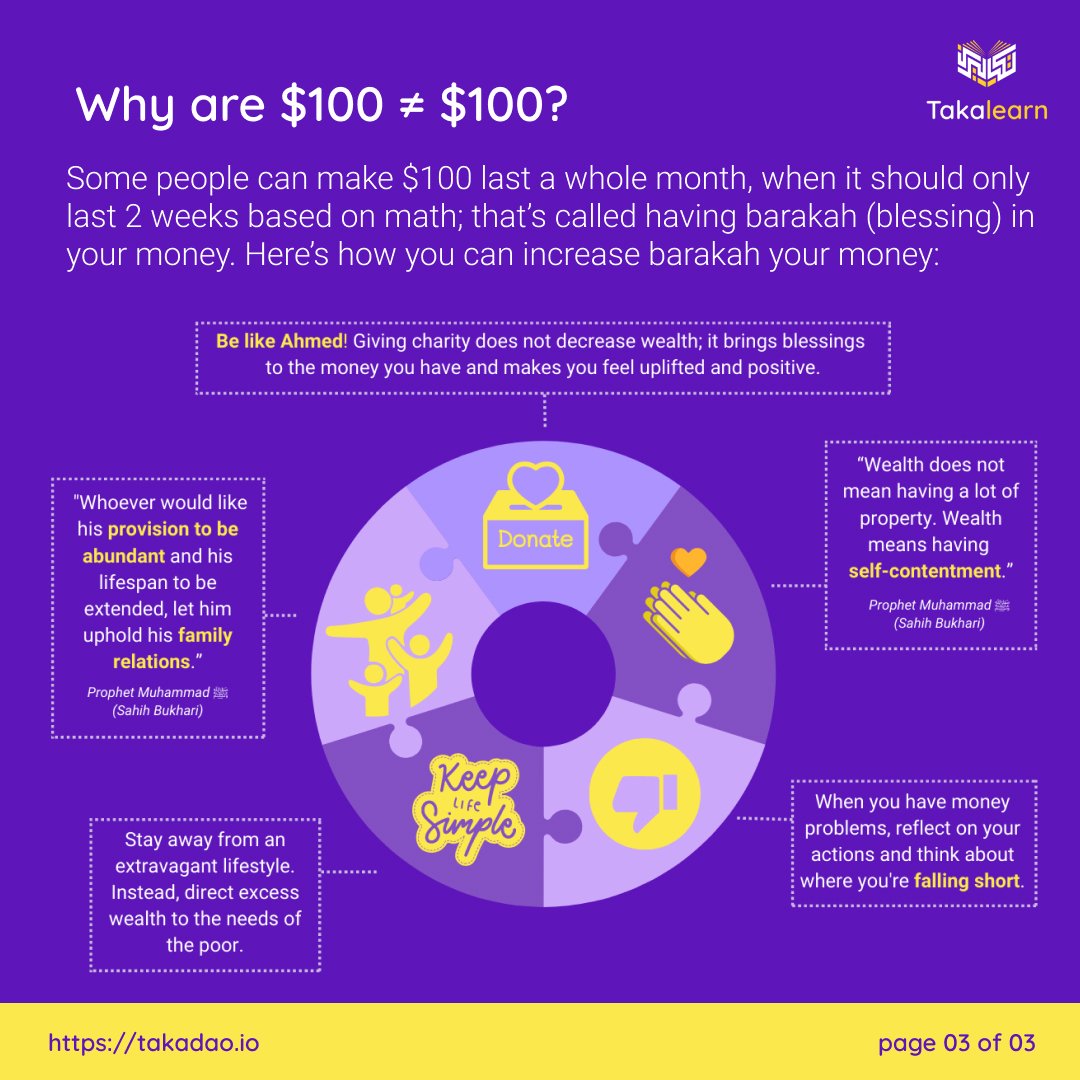Money Management with a Muslim Mindset
The Festival of Sacrifice
Eid al-Adha is a huge religious celebration observed by Muslims worldwide. Apart from the religious rituals and communal feasts, this occasion is also a chance for Muslims to reflect on their finances and look into ways to save and grow their wealth. Wealth is a blessing bestowed upon us by Allah, and how you manage and utilize that wealth is significant in Islam. Muslims are encouraged to view wealth as a means to achieve righteousness and benefit society rather than becoming consumed by material possessions. The pilgrimage of Hajj, a fundamental pillar of Islam, provides valuable lessons on responsible wealth management and emphasizes the importance of using wealth for the glory of Allah. First, let’s see how costly it is to attend Hajj.
Saving for Hajj
Hajj, the annual pilgrimage to Mecca, is one of the Five Pillars of Islam and a dream for many Muslims worldwide. Saving for Hajj requires careful financial planning, involving travel expenses, accommodation, food, and other expenditures. The amount required depends on factors like location, duration, and the level of comfort desired.
To embark on this sacred journey, it is crucial to start saving well in advance. We can accumulate the necessary funds by regularly setting aside a portion of our earnings. On average, it may take several years of saving, depending on one’s income and expenditure, to afford the expenses associated with Hajj. Also, the time it takes for you to save enough largely depends on the country you’re in. If one is in the more developed countries of Europe, they will save enough within a shorter time. On the other hand, if you’re from Africa or less developed Asian countries, you need at least ten times more months to save for Hajj. It is important to remember that saving for Hajj is not just a financial commitment but also a spiritual one, demonstrating dedication and sacrifice to fulfil this religious obligation.
Hajj is a time of spiritual purification, reflection, and renewal for Muslims worldwide. It is an obligation for those who possess the physical and financial means to undertake this journey. Hajj is a profound reminder of the transitory nature of worldly possessions and the ultimate purpose of life—seeking the pleasure of Allah.
Muslims with financial means can use their wealth to support others in fulfilling their Hajj obligations. By sponsoring those unable to afford the journey, individuals can partake in the blessings of Hajj vicariously and earn immense rewards from Allah. This act exemplifies the selflessness and compassion that should be inherent in a responsible Muslim’s approach to wealth.
Growing your Wealth through Barakah
Barakah, a concept deeply rooted in Islamic teachings, can be understood as divine blessings and abundance. Have you ever asked yourself why some people can stay longer with the same amount of money than others? You can have someone spend $100 in two weeks, while for another, it lasts for a whole month. The ability to stay longer with the same amount and expenditures is barakah which is strengthened by the power of giving. Giving opens ways for more blessings. By adopting a mindful financial approach, we can seek Barakah in our savings and investments. When we save with pure intention, seeking the pleasure of Allah, our wealth becomes infused with blessings, multiplying its value and impact.
Practising financial discipline, avoiding extravagance, and making conscious choices about our expenditures are essential steps toward growing our wealth through Barakah. Instead of indulging in temporary pleasures, we can focus on long-term goals and investments that align with our values. This mindset encourages us to save consistently, maintain a balanced lifestyle, and seek opportunities that provide sustainable growth and reward.
The True Value of Wealth
Islam teaches that wealth has no intrinsic value. Its true worth lies in how it is acquired, preserved, and utilized. Muslims are urged to engage in honest and ethical means of earning wealth, following the principles of fairness, justice, and compassion. Acquiring wealth through lawful means is a commendable act that can lead to blessings and rewards from Allah.
Wealth as a Trust from Allah
Islam also teaches that wealth is a trust given to individuals by Allah, who is accountable for its proper use and distribution. Muslims must demonstrate responsibility, gratitude, and humility when dealing with their wealth. Recognizing that wealth is a temporary provision and acknowledging its trustworthy source can help prevent an unhealthy obsession with material possessions. So, if you know that wealth comes from Allah, then we should use it to better the lives of others and for the glory of Allah. Let’s see why it’s better to give than receive.
Charity and Generosity
One of the most important ways to utilize wealth for the glory of Allah is through acts of charity and generosity. Muslims are urged to give a portion of their wealth to those in need, as it purifies the heart, strengthens communities, and assists in the eradication of poverty. Giving benefits the recipient and enhances the giver’s character, promoting humility and selflessness.
Investing in Good Deeds
Muslims should view their wealth as a means to invest in good deeds and seek rewards in the hereafter. Spending wealth to pursue knowledge, establish educational institutions, support healthcare initiatives, or contribute to social welfare programs are just a few ways Muslims can utilize their resources for the greater good. By using wealth as a tool to benefit society, individuals can align their actions with the teachings of Islam and enhance their spiritual journey.
Conclusion
Hajj is a powerful reminder to Muslims about the temporary nature of worldly possessions and the true purpose of life. Responsible wealth management involves recognizing wealth as a trust from Allah and utilizing it in a manner that brings about goodness and serves the needs of others. By exercising generosity, supporting the less fortunate, and investing in acts that bring about positive change, Muslims can ensure that their wealth is used for the glory of Allah and the betterment of society. Ultimately, it is through responsible wealth management that one can attain true success and eternal rewards in both this world and the hereafter.
As we prepare to celebrate Eid al-Adha, let us remember the importance of saving and growing our wealth in a manner that aligns with our religious beliefs. By setting aside some of our earnings and making donations, we work towards fulfilling our financial goals and cultivating gratitude and contentment. Saving for Eid al-Adha and attending Hajj requires sacrifice, discipline, and a firm belief in Barakah. Through mindful financial practices and seeking divine blessings, we can ensure that our journey toward growing wealth becomes a spiritually enriching experience. May this Eid al-Adha be a time of reflection, gratitude, and prosperity for all!





